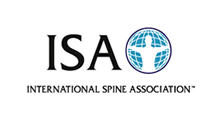
Spine Disorders
|
WHEN TO SEE A SPINE
SPECIALIST You should
seek the advice of a spine specialist if neck or back pain persists for more
than two weeks or if it is progressive in intensity and/or distribution. You
should seek immediate healthcare attention if neck or back pain occurs as the
result of an injury or if it is associated with serious illness and/or a high
fever. Additional signs and symptoms which warrant prompt medical attention include:
For
a sprain/strain, seek prompt medical care if one or more of following
presentations occur; movement of the
neck or back associated with a popping sound with pain and muscle spasm or inability
to stand and bear weight on the spine because of a feeling of
instability or pain. Inadequate or delayed treatment of a severe sprain/strain
may result in long-term joint damage or chronic pain. SCREENING AND DIAGNOSIS The
evaluation of a neck or back sprain/strain should include a history and
physical examination. Examination may reveal swelling, tenderness and or muscle
pain. Your attending physician may order X-rays to rule out a fracture or other
bone injury either of which can accompany a sprain/strain. More severe
involvement may require an MRI study. MRI offers superb imaging of soft
tissues. NATURAL HISTORY AND
PROGNOSIS Most
sprain/strain injuries involving the neck or back resolve with time and limited
treatment. More involved sprain/strains may require treatment and physical
rehabilitation. In rare cases, a severe sprain/strain may require surgical intervention.
COMPLICATIONS The
complications associated with a sprain/strain vary depending on the severity
and the region of the injury. Potential complications include:
|
















